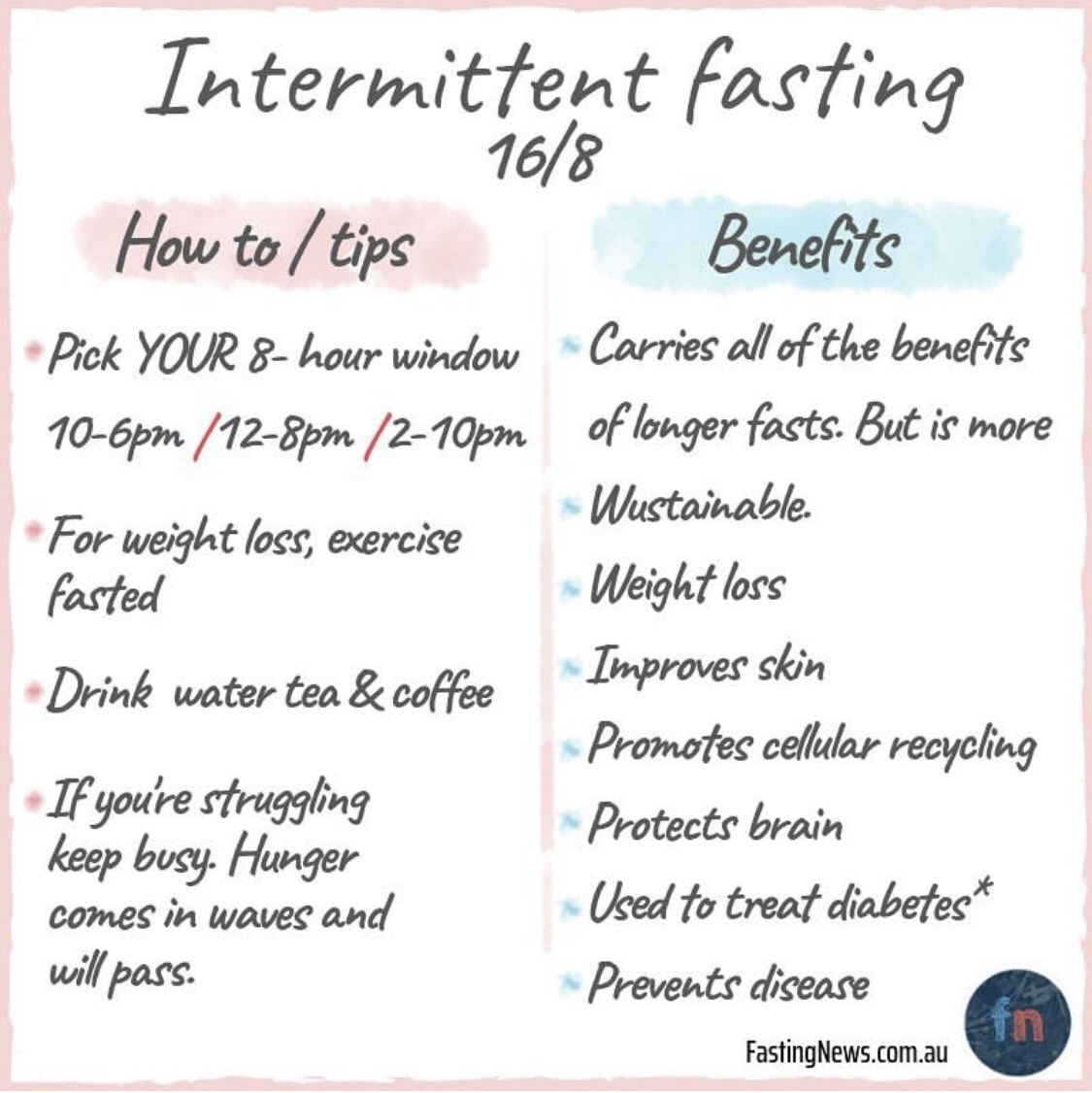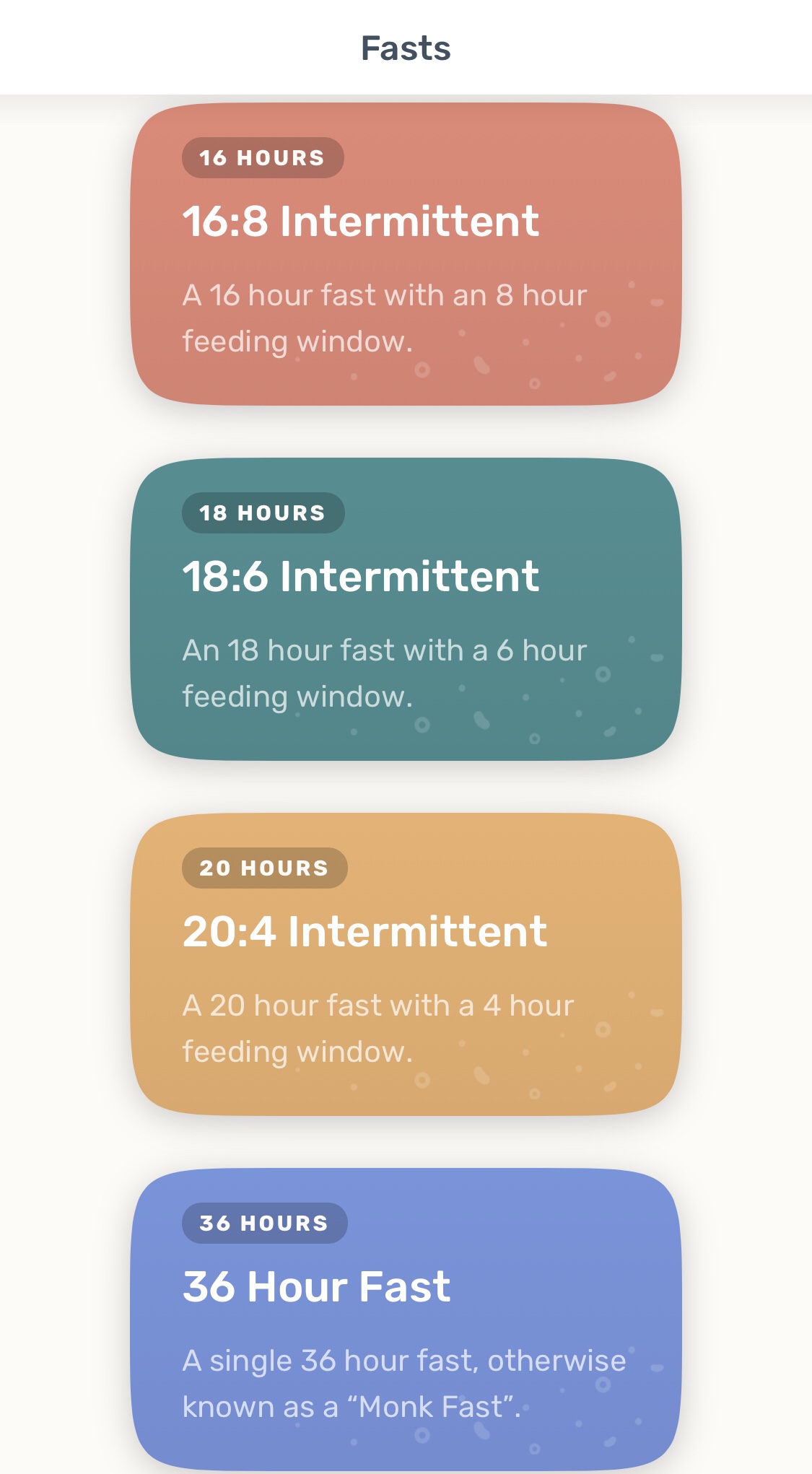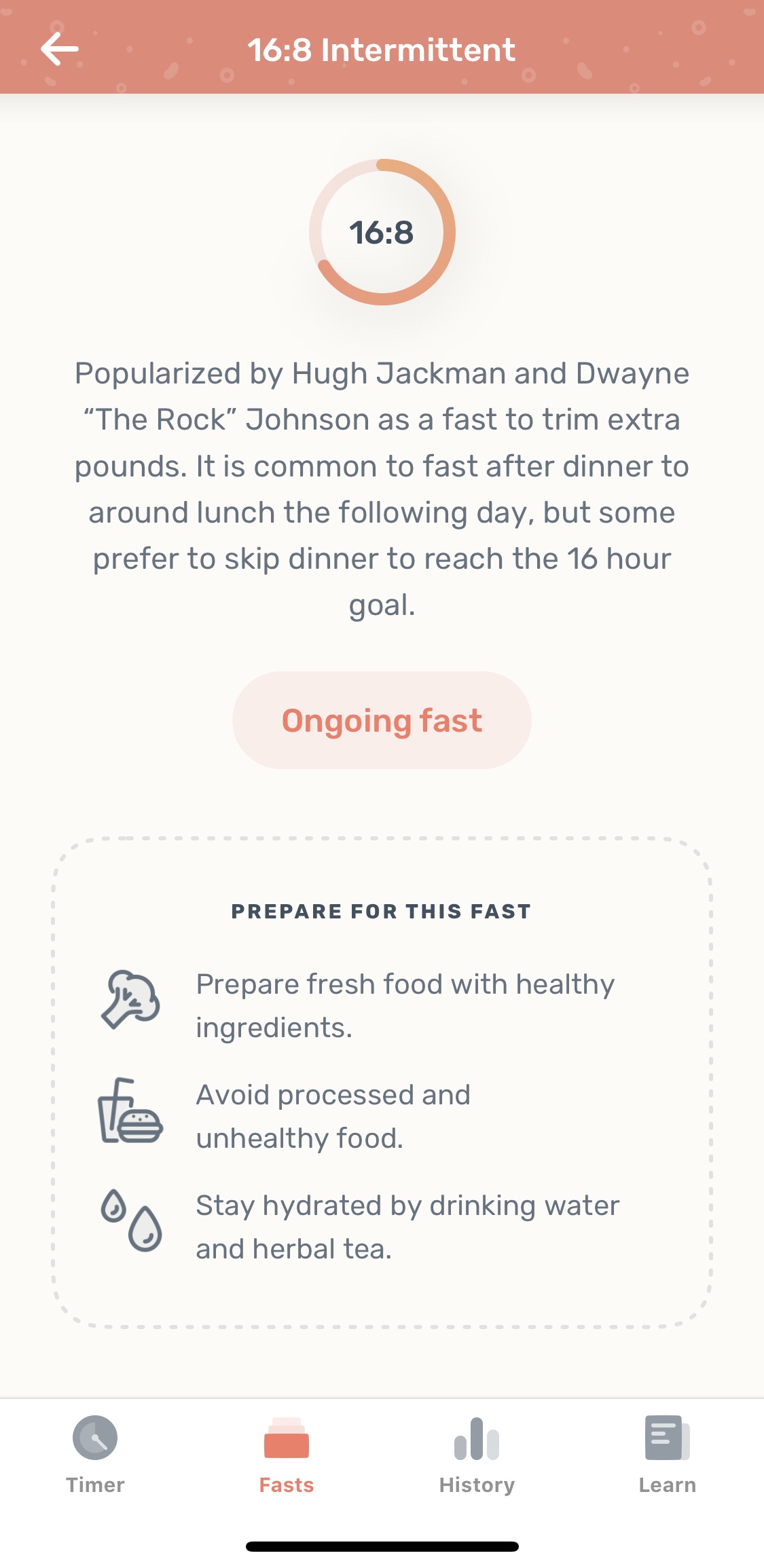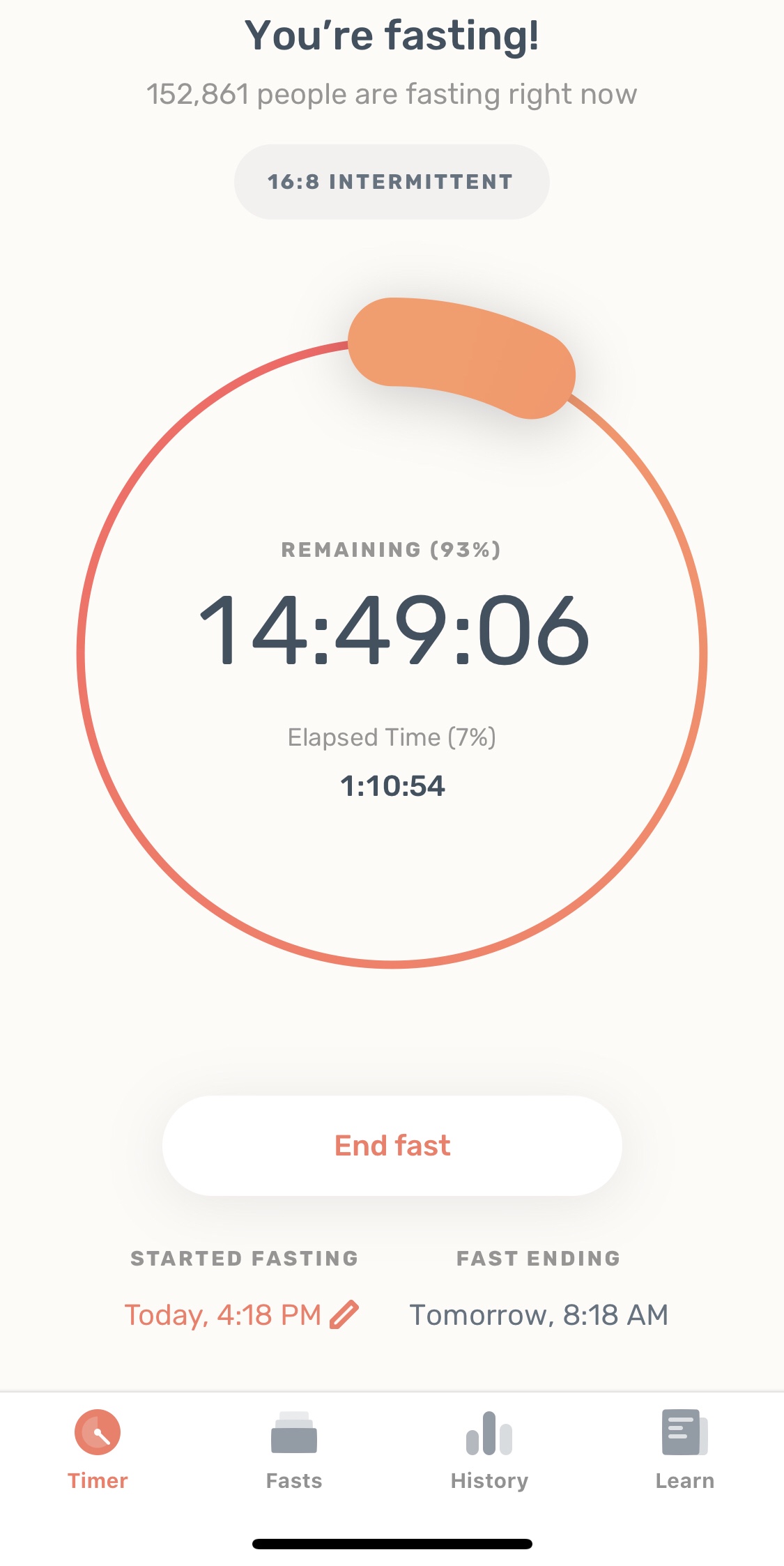Intermittent Fasting 101
Intermittent fasting is a dietary pattern that involves cycling between periods of eating and fasting. There are several different types of intermittent fasting, including:
- Time-restricted fasting: This involves restricting your eating to certain hours of the day, such as only eating during an 8-hour window. I (Vy) personally prefer the 16:8 method while Regina has practiced 18:6 or OMAD (one meal a day) because of her busy schedule and health needs. We do not practice intermittent fasting 365 days out of the year but have found benefits in working some form of it in our regular routines.
- Alternate-day fasting: This involves eating every other day, either consuming only very small amounts of food on non-eating days or abstaining from food entirely. We have never personally tried this method.
- The 5:2 diet: This involves eating normally for 5 days of the week and restricting calories to 500-600 for the other 2 non-consecutive days. David has done this method and had success with his weight loss and energy levels but it was no sustainable for him long term to stick to that schedule.
During periods of fasting, it is super important to stay hydrated. Water, coffee, and other non-caloric beverages are all acceptable to consume while fasting. I take a liquid vitamin that has a little bit of fruit juice in it, but the benefits from the vitamins are worth it to me. Some people also find it helpful to drink broth or consume small amounts of coconut oil or other healthy fats to help reduce hunger during fasting periods. We’ve seen many people start the day with a simple cup of bone broth and have found success.
There are several potential benefits to intermittent fasting, including weight loss, improved insulin sensitivity, and possibly even increased lifespan. However, it is important to note that more research is needed to fully understand the long-term effects of intermittent fasting.
There are also some drawbacks to intermittent fasting to consider as well. For example, it may not be appropriate for everyone, especially people with certain medical conditions or who are pregnant or breastfeeding. It is important to work with a healthcare provider to determine if intermittent fasting is a safe and appropriate option for you. This article is meant to provide a quick overview, not medical advice.
If you are interested in learning more about intermittent fasting, there are many additional studies and resources available online. It is always a good idea to do your own research and consult with a healthcare professional before making any significant changes to your diet.





